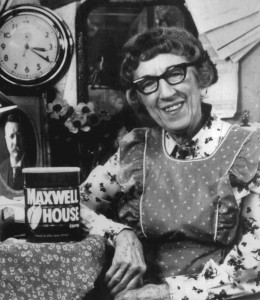
I was pouring one white and three red Bordeaux at Central Bottle on a Friday night a few years ago with the idea of playing a little catch-up on a neglected category. I’d noticed that the only attention the little Bordeaux corner got was from French speakers and a few people of – shall we say – mature years. My boss Liz Vilardi pretty much summed up the problem in her teze for the event in the morning email newsletter: Bordeaux. Bor-d. Eaux. Bor-ing. Irritatingly expensive.
She went on to say that she thought the tide was turning, although my sense was and is that this is optimistic. The reaction of visitors to the tasting table that night, particularly the younger ones, bore this out: namely, a sip followed by either no reaction or a frankly puzzled look. After a couple of hours of this, I decided I needed some simple way of explaining red Bordeaux, since it didn’t seem to be explaining itself. I tried the old trick of suggesting these were wines that would come into their own taken alongside the right food (no less true for being a cliché, by the way).
Then, while chatting with a 20-something Chinese couple who were clearly interested in the subject but not appreciative of what they were tasting I tried this gambit: “Bordeaux,” I said, “is a cup of black coffee.”
By way of explanation I noted that black coffee isn’t something we like straightaway. If we get interested in coffee as youngsters it’s typically because it’s been made into something more in tune with immature tastes by being lightened with milk or cream and sugar – familiar flavors children know and instinctively like. It’s only later, if ever, that we learn to appreciate coffee taken straight-up, with no fat or sweetness added to mitigate its strength and bitterness.
Black coffee is a frankly adult taste; it bypasses all the usual pleasure receptors and rings a bell deep in our most grown-up part. I can’t say what part this is exactly, except that it may be the same one that takes pleasure in hard work or in solving a knotty problem.
I decided I needed some simple way of explaining red Bordeaux, since it didn’t seem to be explaining itself.
This resonated with the young couple, so I started using it whenever anyone was wondering why they should consider Bordeaux when so many other wines offer more gratifying fruit and less chafing tannins. I explain that even the Brits – who had long been the primary market for the wines of BDX — were already defecting in favor of Australian and Chilean lollipop wines in the 1980’s.
Part of the fault for this can be laid at the door of younger drinkers with untrained palates, but the Bordelais need to shoulder some blame for not caring as much about the quality of the coffee they were brewing. It may be that the growing interest in ‘mineral expression’ and in the low and no-sulfur production methods that result in drier, more savory wines will gradually put a new generation of young wine drinkers in a position to more readily appreciate classical Bordeaux style.
Let’s hope so. A region with so glorious a past, one that has contributed so much via its classed growths to the notion of wine as an elite, civilizing beverage, shouldn’t be allowed to sink into obscurity — on any grounds.
Reach me at stephenmeuse@icloud.com
Follow Stephen Meuse